Self-discovery is a profound journey that many embark on at various points in their lives. It is a process of introspection and exploration that allows individuals to understand their true selves, values, and passions. In a world filled with distractions and societal expectations, taking the time to delve into self-discovery can lead to a more fulfilling and authentic life. This blog post will explore the process of self-discovery, including effective techniques such as journaling, meditation, and personal reflection.
Understanding Self-Discovery

Self-discovery is the process of gaining insight into one’s own character, values, and motivations. It involves peeling back the layers of societal conditioning and external influences to reveal the core of who you are. This journey can be triggered by various life events, such as a significant change, a milestone birthday, or even a moment of crisis. The goal is to uncover your true self, which is often obscured by the roles you play in life, such as being a parent, employee, or friend.
The Importance of Self-Discovery
Understanding yourself is crucial for several reasons:
- Improved Decision-Making: When you know your values and passions, you can make decisions that align with your true self, leading to greater satisfaction and fulfillment(11 Stories of Self-Discovery That Will Inspire You to Find Your Passion – Thrive Global, n.d.; What Is Self-Discovery? 10 Tips for Finding Yourself, n.d.).
- Enhanced Relationships: Self-discovery helps you understand your needs and boundaries, which can improve your relationships with others(11 Stories of Self-Discovery That Will Inspire You to Find Your Passion – Thrive Global, n.d.; What Is Self-Discovery? 10 Tips for Finding Yourself, n.d.).
- Increased Resilience: Knowing who you are can provide a strong foundation during challenging times, allowing you to navigate life’s ups and downs with greater ease(11 Stories of Self-Discovery That Will Inspire You to Find Your Passion – Thrive Global, n.d.; What Is Self-Discovery? 10 Tips for Finding Yourself, n.d.).
- Personal Growth: The journey of self-discovery fosters personal growth and development, enabling you to evolve into the best version of yourself(11 Stories of Self-Discovery That Will Inspire You to Find Your Passion – Thrive Global, n.d.; What Is Self-Discovery? 10 Tips for Finding Yourself, n.d.).
Techniques for Self-Discovery
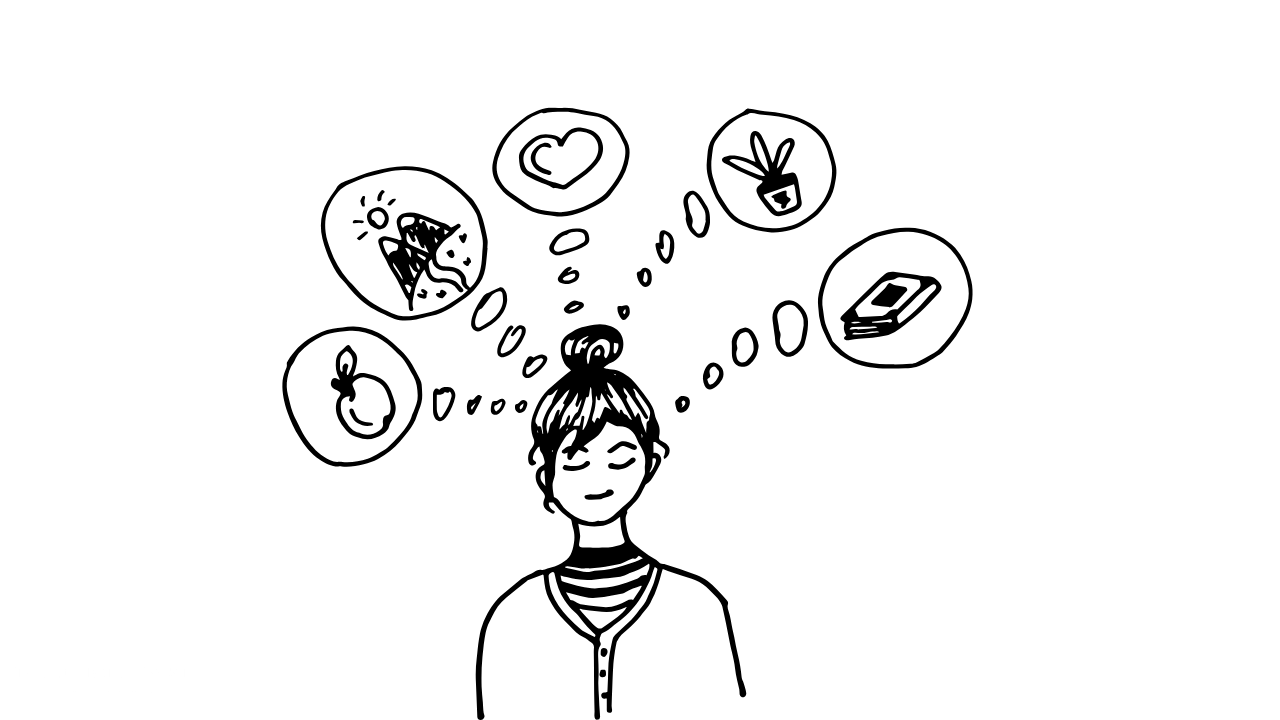
There are several techniques that can facilitate the process of self-discovery. Each method offers unique insights and can be tailored to fit individual preferences and lifestyles.
1. Journaling
Journaling is a powerful tool for self-reflection and exploration. It allows you to articulate your thoughts and feelings, providing clarity and insight into your inner world. Here are some journaling techniques to consider:
- Free Writing: Set a timer for 10-15 minutes and write without stopping. Don’t worry about grammar or structure; just let your thoughts flow. This can help uncover subconscious thoughts and feelings.
- Prompts: Use specific prompts to guide your writing. For example:
- What are my core values?
- What activities make me feel most alive?
- What fears hold me back from pursuing my passions?
- Gratitude Journaling: Write down things you are grateful for each day. This practice can shift your focus from negativity to positivity, helping you appreciate your life and uncover what truly matters to you.
2. Meditation: A Pathway to Inner Peace and Self-Discovery
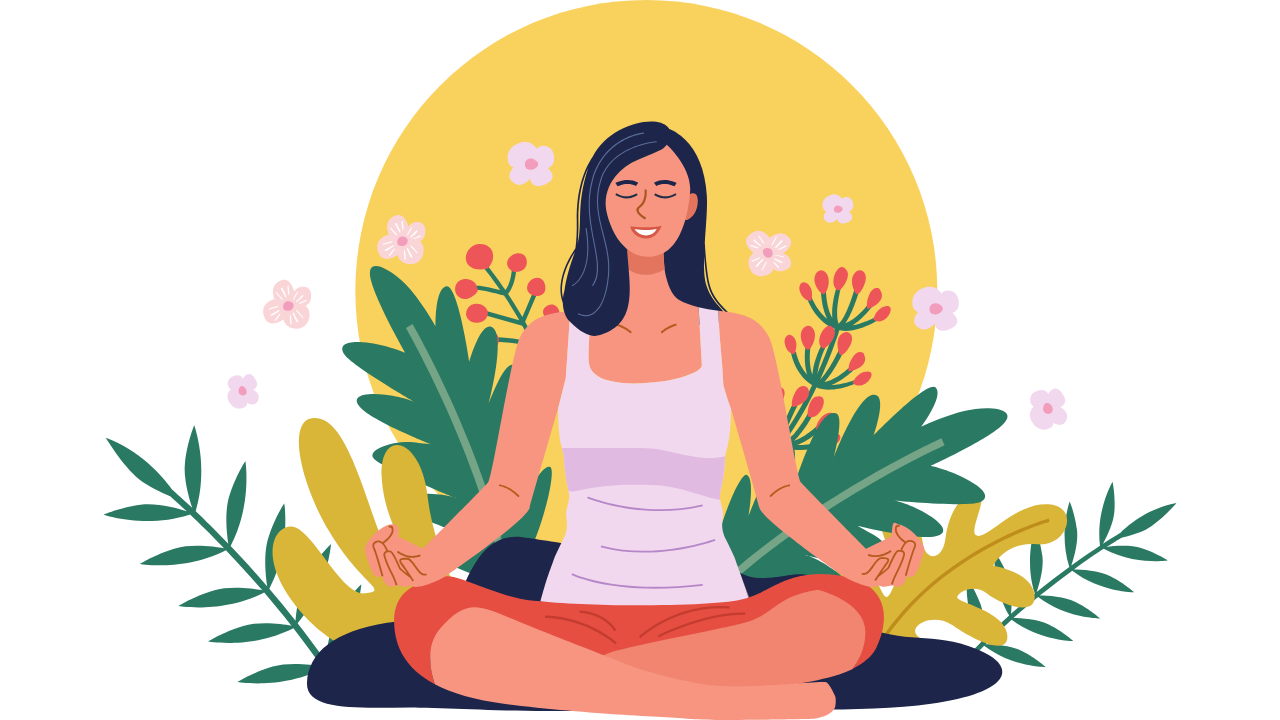
Meditation is a practice that has been utilized for thousands of years across various cultures and spiritual traditions. It serves as a powerful tool for self-discovery, emotional regulation, and mental clarity. By fostering a deep connection with oneself, meditation allows individuals to explore their thoughts, feelings, and inner landscapes, leading to greater self-awareness and personal growth. The significance of meditation lies in its ability to cultivate mindfulness, reduce stress, and enhance overall well-being.
The Significance of Meditation
Meditation offers numerous benefits that contribute to mental, emotional, and physical health. Here are some key aspects of its significance:
- Stress Reduction: One of the most well-documented benefits of meditation is its ability to reduce stress. By promoting relaxation and calming the mind, meditation helps lower levels of stress hormones like cortisol, leading to a more balanced emotional state.
- Enhanced Focus and Concentration: Regular meditation practice improves attention span and cognitive function. It trains the mind to focus on the present moment, which can enhance productivity and decision-making skills.
- Emotional Regulation: Meditation fosters emotional awareness and resilience. By observing thoughts and feelings without judgment, individuals can develop healthier responses to emotional challenges, reducing anxiety and depression.
- Self-Discovery and Insight: Through meditation, individuals can gain deeper insights into their thoughts, beliefs, and behaviors. This self-reflection can lead to a better understanding of one’s values, passions, and life purpose.
- Improved Physical Health: Meditation has been linked to various physical health benefits, including lower blood pressure, improved immune function, and better sleep quality. These physical improvements can further enhance mental well-being.
Techniques for Effective Meditation
There are various meditation techniques that cater to different preferences and goals. Here are some popular methods to consider:
Mindfulness Meditation
Mindfulness meditation involves focusing on the present moment and observing thoughts, feelings, and bodily sensations without judgment. This practice encourages awareness of the here and now, helping to cultivate a sense of calm and clarity.
- How to Practice: Find a quiet space, sit comfortably, and focus on your breath. Notice the sensation of the breath entering and leaving your body. When thoughts arise, acknowledge them without judgment and gently return your focus to your breath.
Loving-Kindness Meditation (Metta)
Loving-kindness meditation is a practice that involves generating feelings of compassion and love towards oneself and others. It helps foster positive emotions and improve interpersonal relationships.
- How to Practice: Begin by sitting comfortably and taking a few deep breaths. Silently repeat phrases such as “May I be happy, may I be healthy, may I be safe, may I live with ease.” Gradually extend these wishes to loved ones, acquaintances, and even those with whom you have difficulties.
Guided Meditation
Guided meditation involves following a recorded meditation or a live instructor who leads you through the process. This technique can be particularly helpful for beginners or those who prefer structure in their practice.
- How to Practice: Use a meditation app or online resource to find guided meditations that resonate with you. Follow the instructions provided, allowing the guide to lead you through visualization or relaxation techniques.
Transcendental Meditation (TM)
Transcendental Meditation is a specific form of mantra meditation that involves silently repeating a mantra to settle the mind into a state of profound rest and relaxation.
- How to Practice: TM is typically taught through a certified instructor. The practice involves sitting comfortably with your eyes closed and silently repeating your mantra for about 20 minutes, twice a day.
Body Scan Meditation
Body scan meditation focuses on bringing awareness to different parts of the body, promoting relaxation and reducing tension.
- How to Practice: Lie down comfortably and close your eyes. Starting from your toes, mentally scan each part of your body, noticing any sensations or tension. Gradually move up to your head, consciously relaxing each area as you go.
Practical Tips for Building a Meditation Habit
Establishing a consistent meditation practice can be challenging, but with the right strategies, it can become a rewarding part of your daily routine. Here are some tips to help you get started:
- Start Small: Begin with just a few minutes of meditation each day. Gradually increase the duration as you become more comfortable with the practice.
- Set a Regular Time: Choose a specific time each day to meditate, whether it’s in the morning, during lunch, or before bed. Consistency helps reinforce the habit.
- Create a Comfortable Space: Find a quiet, comfortable place to meditate where you won’t be interrupted. This can enhance your focus and make meditation more enjoyable.
- Use Guided Resources: If you’re new to meditation, consider using apps or online resources that offer guided sessions. This can provide structure and support as you develop your practice.
- Be Patient and Kind to Yourself: Remember that meditation is a skill that takes time to develop. Allow yourself to experience thoughts and distractions without judgment, and gently return your focus to your practice.
- Reflect on Your Experience: After each session, take a moment to reflect on your experience. Notice any changes in your mood, thoughts, or physical sensations. This reflection can deepen your understanding of the benefits of meditation.
3. Personal Reflection: A Journey Within
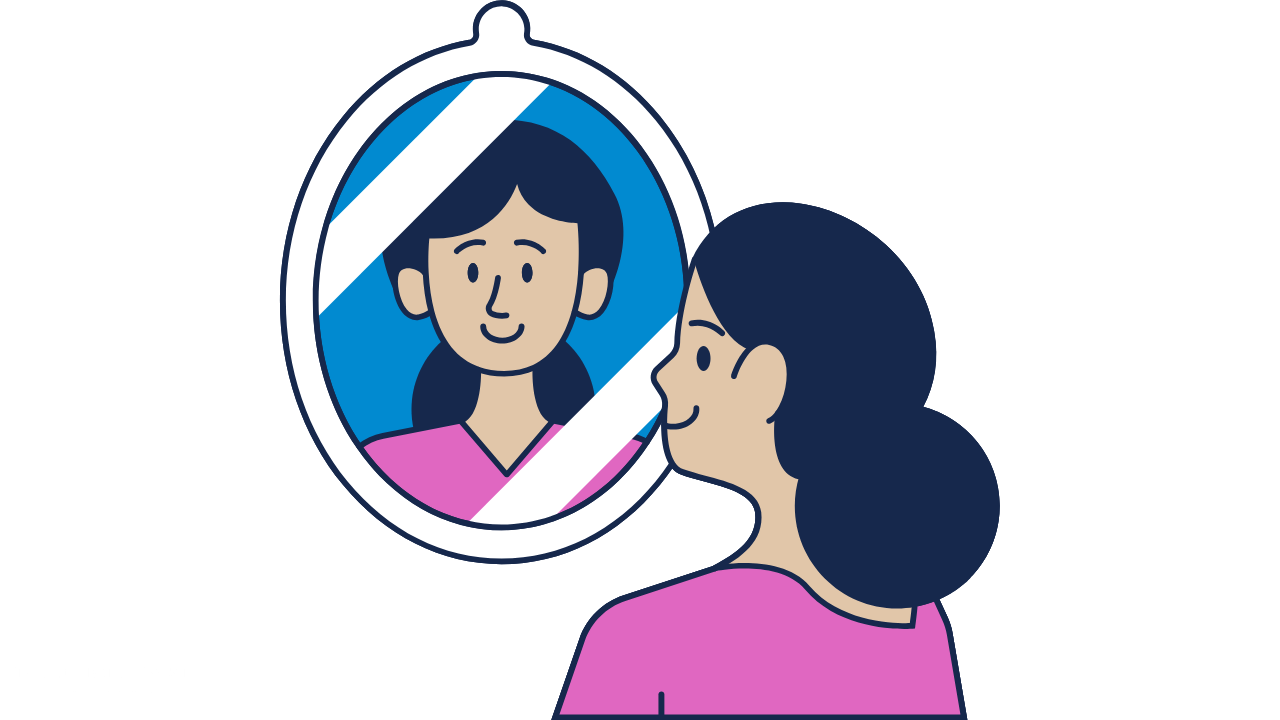
Personal reflection is a vital process in the journey of self-discovery, allowing individuals to examine their thoughts, feelings, and experiences in a structured manner. It involves looking inward to gain insights about oneself, fostering a deeper understanding of personal values, beliefs, and motivations. This introspective practice can lead to significant personal growth, enhanced emotional intelligence, and improved decision-making skills. By engaging in personal reflection, individuals can better navigate their lives, make informed choices, and cultivate a sense of purpose.
The Significance of Personal Reflection
The importance of personal reflection cannot be overstated. It serves as a foundation for self-awareness and personal development. Here are some key aspects of its significance:
- Enhanced Self-Awareness: Personal reflection helps individuals become more aware of their thoughts, emotions, and behaviors. This heightened self-awareness allows for a better understanding of how one’s experiences shape their identity and actions.
- Emotional Processing: Reflecting on personal experiences provides an opportunity to process emotions, particularly those related to challenging situations. This can lead to emotional healing and a greater sense of peace.
- Clarification of Values and Goals: Through reflection, individuals can identify their core values and aspirations. This clarity can guide decision-making and help align actions with personal goals.
- Learning from Experiences: Reflection allows individuals to analyze past experiences, both positive and negative, to extract valuable lessons. This learning can inform future choices and behaviors.
- Improved Problem-Solving Skills: Engaging in reflective practices can enhance critical thinking and problem-solving abilities. By considering different perspectives and outcomes, individuals can develop more effective strategies for addressing challenges.
Techniques for Effective Personal Reflection
There are various techniques that can facilitate personal reflection, each catering to different preferences and goals. Here are some popular methods to consider:
1. Journaling
Journaling is one of the most effective ways to engage in personal reflection. It allows individuals to articulate their thoughts and feelings, providing a tangible record of their inner experiences. To practice reflective journaling, set aside time each day or week to write about your thoughts, feelings, and experiences. Use prompts to guide your writing, such as reflecting on a significant event or exploring your emotional responses to daily challenges.
2. Meditation and Mindfulness
Meditation and mindfulness practices encourage individuals to focus on the present moment and observe their thoughts and feelings without judgment. This practice can enhance self-awareness and promote emotional regulation. To incorporate meditation into your reflective practice, find a quiet space, close your eyes, and focus on your breath. Allow thoughts to come and go without attachment, and gently return your focus to your breath.
3. Self-Assessment and Feedback
Engaging in self-assessment can provide valuable insights into personal strengths and areas for growth. Consider using tools such as personality assessments or reflective questionnaires to evaluate your skills, values, and goals. Additionally, seeking feedback from trusted friends, family members, or mentors can offer an external perspective on your behaviors and choices, enriching your reflective process.
4. Reflective Conversations
Having reflective conversations with others can deepen your understanding of yourself and your experiences. Choose a trusted friend or mentor to discuss your thoughts and feelings openly. This dialogue can provide new insights and help you see your experiences from different perspectives.
5. Creative Expression
Engaging in creative activities such as art, music, or writing can serve as a form of personal reflection. These activities allow for self-expression and can help individuals process emotions and experiences in a unique way. Consider creating art that represents your feelings or writing poetry that captures your thoughts.
Practical Tips for Building a Reflection Habit
Establishing a consistent personal reflection practice can be challenging, but with the right strategies, it can become a rewarding part of your daily routine. Here are some tips to help you get started:
- Set Aside Time: Dedicate specific time for reflection in your daily or weekly schedule. Consistency is key to developing a reflective habit.
- Create a Comfortable Space: Find a quiet and comfortable space where you can reflect without distractions. This environment can enhance your focus and make the process more enjoyable.
- Be Honest and Open: Approach your reflective practice with honesty and openness. Allow yourself to explore difficult emotions and experiences without judgment.
- Use Prompts: If you find it challenging to start reflecting, use prompts or questions to guide your thoughts. This can help you focus on specific areas of your life or experiences.
- Review and Reflect: Periodically review your reflections to identify patterns, growth, and changes over time. This can provide valuable insights into your personal development journey.
4. Exploring New Experiences: A Gateway to Self-Discovery

Exploring new experiences is a vital aspect of the journey of self-discovery. It involves stepping outside of your comfort zone and engaging in activities that challenge your existing beliefs, skills, and perspectives. This exploration can lead to personal growth, increased self-awareness, and a deeper understanding of your values and passions. By embracing new experiences, individuals can uncover hidden talents, develop resilience, and gain insights that contribute to their overall sense of identity.
The Significance of Exploring New Experiences
The importance of exploring new experiences in self-discovery is multifaceted. Here are some key aspects of its significance:
- Personal Growth: Engaging in new activities can foster personal development by pushing you to adapt, learn, and grow. This growth often leads to increased confidence and a greater sense of self-efficacy.
- Broadening Perspectives: New experiences expose you to different cultures, ideas, and ways of thinking. This exposure can challenge preconceived notions and help you develop a more nuanced understanding of the world.
- Uncovering Passions: Trying new things can help you discover interests and passions that you may not have previously considered. This can lead to new hobbies, career paths, or life directions.
- Building Resilience: Facing unfamiliar situations can enhance your ability to cope with challenges and setbacks. This resilience is crucial for navigating life’s ups and downs and can contribute to a more fulfilling life.
- Enhancing Creativity: Engaging in diverse experiences can stimulate creativity by encouraging you to think outside the box and approach problems from different angles.
Techniques for Exploring New Experiences
There are various techniques that can facilitate the exploration of new experiences. Here are some popular methods to consider:
1. Travel and Cultural Immersion
Traveling to new places, whether locally or internationally, allows you to immerse yourself in different cultures and environments. This exposure can broaden your horizons and provide valuable insights into your own identity.
- How to Practice: Plan trips to destinations that interest you, whether they are nearby or far away. Engage with local customs, try new foods, and interact with residents to gain a deeper understanding of the culture.
2. Taking Classes or Workshops
Participating in classes or workshops can introduce you to new skills and knowledge areas. This structured approach allows you to learn from experts and connect with others who share similar interests.
- How to Practice: Look for classes in areas that intrigue you, such as cooking, art, dance, or technology. Many community centers, colleges, and online platforms offer a variety of options.
3. Volunteering
Volunteering for a cause you care about can provide meaningful experiences while allowing you to give back to the community. This engagement can help you connect with others and gain a sense of purpose.
- How to Practice: Research local organizations that align with your interests and offer volunteer opportunities. This could involve working with animals, helping the elderly, or participating in environmental conservation efforts.
4. Joining Clubs or Groups
Joining clubs or groups that focus on specific interests can help you meet new people and engage in activities that you enjoy. This social aspect can enhance your experience and provide support as you explore new avenues.
- How to Practice: Look for local clubs, meetups, or online communities that align with your interests, whether they are related to sports, hobbies, or professional development.
5. Trying New Hobbies
Exploring new hobbies can be a fun and fulfilling way to discover new interests. Hobbies can range from physical activities to creative pursuits, providing a wide array of options for exploration.
- How to Practice: Make a list of activities you’ve always wanted to try, such as painting, hiking, or playing a musical instrument. Dedicate time each week to explore these hobbies and see what resonates with you.
Practical Tips for Embracing New Experiences
Incorporating new experiences into your life can be challenging, but with the right strategies, it can become a rewarding part of your self-discovery journey. Here are some tips to help you get started:
- Set Intentions: Before embarking on a new experience, set clear intentions about what you hope to gain from it. This can help you stay focused and motivated.
- Start Small: If you’re hesitant about trying something new, start with small steps. Gradually increase the complexity or intensity of the experiences as you become more comfortable.
- Be Open-Minded: Approach new experiences with an open mind and a willingness to learn. Embrace the uncertainty and potential discomfort that may come with stepping outside your comfort zone.
- Reflect on Your Experiences: After trying something new, take time to reflect on the experience. Consider what you learned, how you felt, and whether it aligns with your values and interests.
- Connect with Others: Share your experiences with friends or family, or seek out others who have similar interests. This can enhance your understanding and provide additional support as you explore.
Overcoming Challenges in Self-Discovery
The journey of self-discovery is not always easy. It can be filled with challenges and obstacles. Here are some common challenges and strategies to overcome them:

1.Fear of Change
Fear of change is a common barrier that many individuals encounter on their journey of self-discovery. This fear can manifest in various ways, including anxiety, resistance, and self-doubt, often stemming from the uncertainty that accompanies change. Whether it’s a shift in personal circumstances, a new career path, or a change in relationships, the prospect of the unknown can be daunting. Understanding and addressing this fear is crucial for personal growth and the pursuit of a more authentic self.
Understanding the Fear of Change
Fear of change is rooted in several psychological factors:
- Fear of the Unknown: Change often brings uncertainty, and the inability to predict outcomes can lead to anxiety. This fear can be particularly strong when individuals are faced with significant life transitions, such as moving to a new city, starting a new job, or ending a relationship.
- Loss of Control: Change can make individuals feel as though they are losing control over their lives. This feeling can be unsettling, especially for those who thrive on stability and predictability.
- Fear of Failure: Many people fear that they will not succeed in their new endeavors or that they will make mistakes. This fear can prevent them from taking the necessary steps toward change, as they may prefer to remain in their comfort zones rather than risk failure.
- Attachment to the Past: Individuals may have a strong emotional attachment to their current circumstances, even if those circumstances are not fulfilling. The comfort of familiarity can make it difficult to let go and embrace new possibilities.
Strategies to Overcome the Fear of Change
While fear of change can be paralyzing, there are several strategies that individuals can employ to navigate this challenge effectively:
1. Acknowledge Your Fears
The first step in overcoming fear is to acknowledge and confront it. Take time to identify specific fears related to the change you are facing. Write them down and reflect on their origins. Understanding the root of your fears can help demystify them and reduce their power over you.
2. Reframe Your Perspective
Instead of viewing change as a threat, try to reframe it as an opportunity for growth and self-discovery. Consider the potential benefits that change can bring, such as new experiences, personal development, and the chance to learn more about yourself. Shifting your mindset can help alleviate anxiety and foster a more positive outlook.
3. Take Small Steps
Change does not have to happen all at once. Break down the process into smaller, manageable steps. This approach allows you to gradually acclimate to the changes and reduces the feeling of being overwhelmed. Celebrate small victories along the way to build confidence and reinforce your ability to adapt.
4. Seek Support
Surround yourself with supportive friends, family, or mentors who can provide encouragement and guidance during times of change. Sharing your fears and experiences with others can help you feel less isolated and more empowered. Consider seeking professional support, such as therapy or coaching, to gain additional insights and coping strategies.
5. Embrace Flexibility
Cultivating a mindset of flexibility can help you adapt to change more easily. Recognize that change is a natural part of life and that it often leads to unexpected opportunities. Practice being open to new experiences and willing to adjust your plans as needed. This adaptability can reduce anxiety and enhance your resilience.
6. Reflect on Past Changes
Take time to reflect on previous changes you have experienced in your life. Consider how you navigated those transitions and what you learned from them. Reminding yourself of your past successes can help build confidence in your ability to handle future changes.
2. Societal Expectations: Navigating the Pressure to Conform
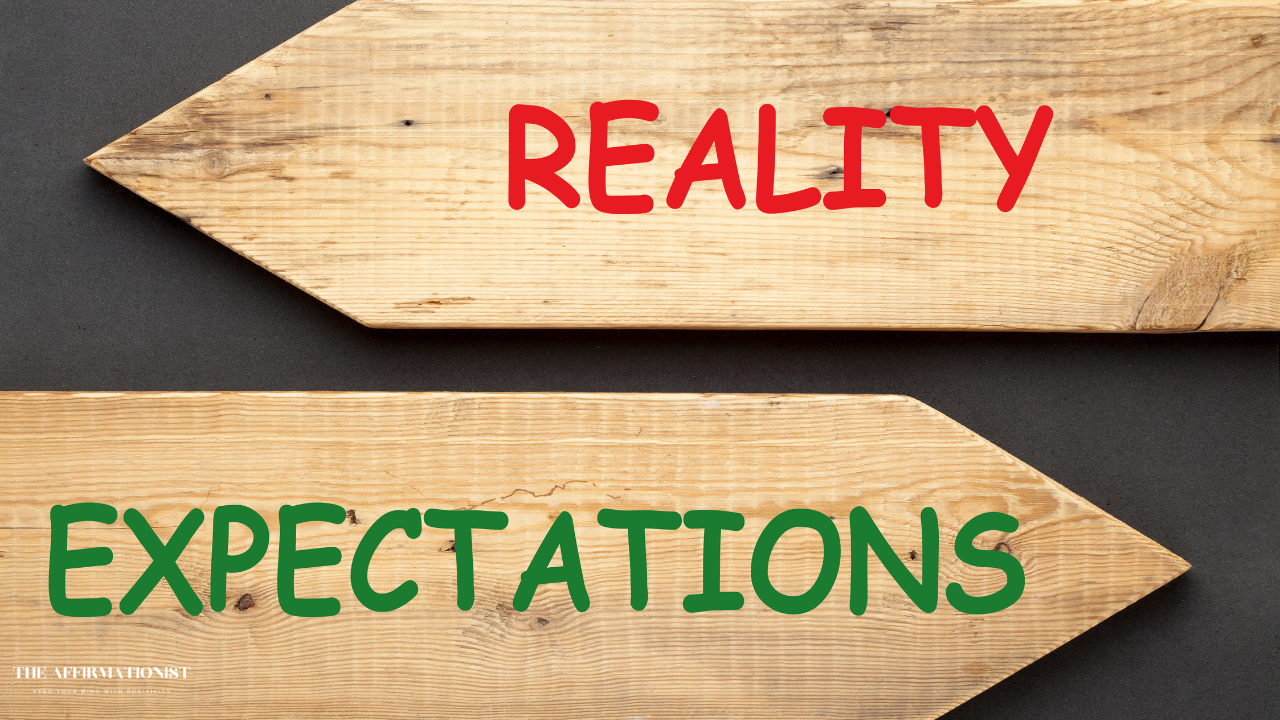
Societal expectations are the norms, values, and standards that a community or culture imposes on individuals regarding behavior, roles, and aspirations. These expectations can significantly influence personal identity, self-perception, and the choices individuals make throughout their lives. While societal expectations can provide a framework for social cohesion and shared values, they can also create pressure that hinders personal growth and self-discovery. Understanding and navigating these expectations is crucial for individuals seeking to forge their own paths and embrace their authentic selves.
The Significance of Societal Expectations
The impact of societal expectations on personal development is profound and multifaceted. Here are some key aspects of its significance:
- Influence on Identity Formation: Societal expectations play a critical role in shaping individual identities. From a young age, individuals are often taught to conform to specific roles based on gender, culture, and social class. These expectations can dictate everything from career choices to personal relationships, influencing how individuals see themselves and their potential.
- Pressure to Conform: The desire for acceptance and belonging can lead individuals to conform to societal norms, even when these norms conflict with their personal values or desires. This pressure can result in feelings of inadequacy, anxiety, and a diminished sense of self-worth, particularly when individuals feel they are not meeting societal standards.
- Impact on Mental Health: The stress of trying to meet societal expectations can contribute to mental health challenges, including depression, anxiety, and low self-esteem. Individuals may feel trapped in roles that do not align with their true selves, leading to internal conflict and emotional distress.
- Barriers to Self-Discovery: Societal expectations can create barriers to self-discovery by discouraging individuals from exploring their true interests, passions, and identities. The fear of judgment or rejection can prevent individuals from pursuing paths that resonate with their authentic selves.
Influences of Societal Expectations
Societal expectations can stem from various sources, including:
- Cultural Norms: Different cultures have distinct norms and values that shape expectations around behavior, career choices, family roles, and personal aspirations. These cultural influences can create pressure to conform to traditional roles, particularly regarding gender and family dynamics.
- Media Representation: Media plays a significant role in shaping societal expectations by portraying idealized images of success, beauty, and behavior. The constant exposure to curated lifestyles on social media can lead to unrealistic comparisons and feelings of inadequacy.
- Family Dynamics: Family expectations often reflect broader societal norms. Parents and family members may impose their own aspirations and values on individuals, creating additional pressure to conform to specific paths or roles.
- Peer Influence: Friends and social circles can also exert pressure to conform to societal expectations. The desire to fit in and be accepted by peers can lead individuals to adopt behaviors and attitudes that align with group norms, even if they conflict with personal beliefs.
Strategies for Navigating Societal Expectations
While societal expectations can be challenging to navigate, there are several strategies individuals can employ to maintain their authenticity and pursue self-discovery:
1. Cultivate Self-Awareness
Developing self-awareness is essential for understanding how societal expectations influence your thoughts, feelings, and behaviors. Reflect on your values, beliefs, and aspirations, and consider how they align or conflict with societal norms. Journaling, meditation, and personal reflection can help enhance self-awareness.
2. Set Personal Boundaries
Establishing clear personal boundaries can help protect your sense of self from external pressures. Learn to say no to expectations that do not resonate with your values or that compromise your well-being. Communicate your boundaries to others, and prioritize your needs and desires.
3. Seek Supportive Communities
Surround yourself with individuals who support your journey of self-discovery and encourage you to embrace your authentic self. Seek out communities, groups, or friendships that align with your values and interests, providing a safe space for exploration and growth.
4. Challenge Societal Norms
Engage critically with societal expectations by questioning their validity and relevance to your life. Consider how these norms may be outdated or harmful, and explore alternative perspectives that promote individuality and self-acceptance. This critical engagement can empower you to redefine your identity on your own terms.
5. Embrace Imperfection
Recognize that perfection is an unrealistic standard often perpetuated by societal expectations. Embrace your imperfections and view them as part of your unique identity. Allow yourself to make mistakes and learn from them, fostering resilience and personal growth.
6. Practice Self-Compassion
Be kind to yourself as you navigate societal expectations. Acknowledge that it is normal to feel pressure and uncertainty, and practice self-compassion by treating yourself with the same kindness and understanding you would offer a friend. This practice can help alleviate feelings of inadequacy and promote a healthier self-image.
3. Self-Doubt: Understanding and Overcoming the Inner Critic
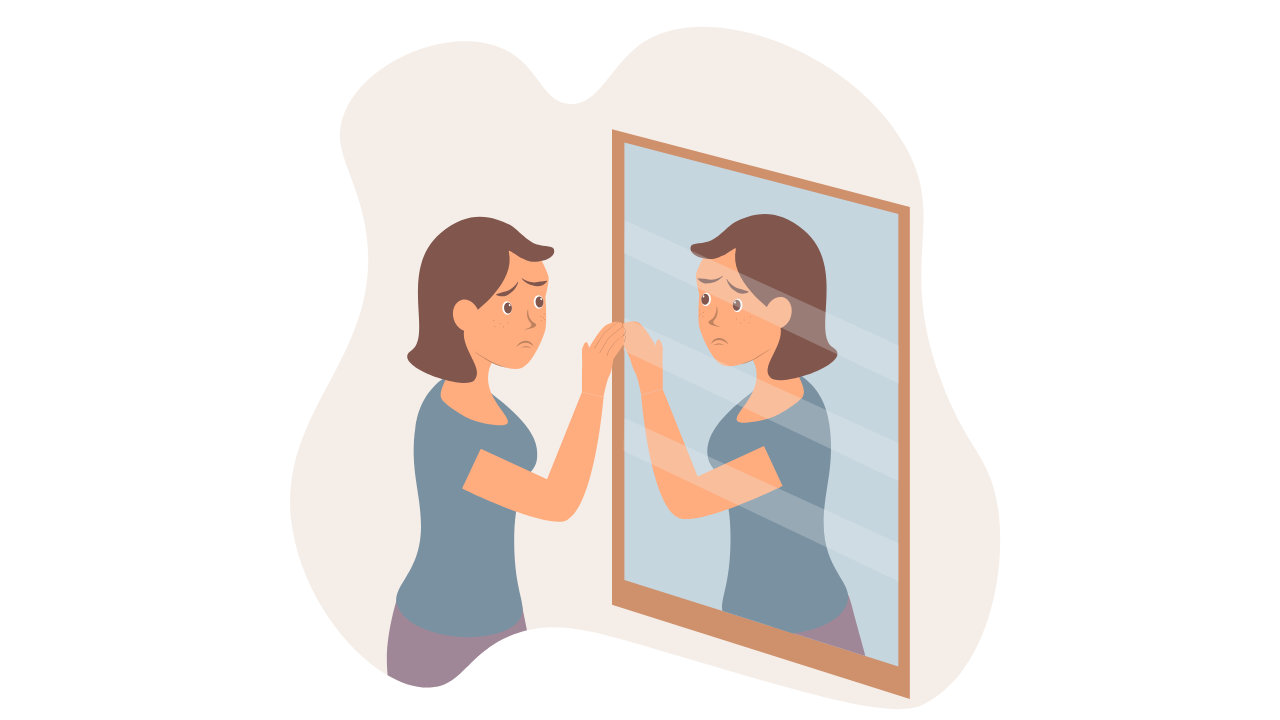
Self-doubt is a pervasive feeling of uncertainty regarding one’s abilities, qualities, or decisions. It can manifest in various aspects of life, including personal relationships, academic pursuits, and professional endeavors. While some degree of self-doubt is normal and can even be beneficial by prompting self-reflection and growth, excessive self-doubt can hinder personal development and lead to negative outcomes such as anxiety, procrastination, and diminished self-esteem. Understanding the roots of self-doubt and developing strategies to overcome it is essential for individuals seeking to embrace their authentic selves and achieve their goals.
The Significance of Self-Doubt
Self-doubt can significantly impact an individual’s mental health and overall well-being. Here are some key aspects of its significance:
- Impact on Performance: Self-doubt can lead to decreased performance in various areas, including academics, sports, and professional settings. When individuals doubt their abilities, they may hesitate to take risks or pursue opportunities, ultimately limiting their potential.
- Emotional Distress: Chronic self-doubt is often associated with feelings of anxiety, depression, and low self-esteem. Individuals may experience a constant internal struggle, leading to emotional distress and a negative self-image.
- Decision-Making Challenges: Self-doubt can complicate decision-making processes. Individuals may second-guess their choices, leading to indecision and missed opportunities. This can create a cycle of self-doubt, where the fear of making the wrong choice reinforces feelings of inadequacy.
- Social Interactions: Self-doubt can affect interpersonal relationships. Individuals may withdraw from social situations or avoid expressing their opinions due to fear of judgment or rejection. This can lead to isolation and hinder the development of meaningful connections.
Influences of Self-Doubt
Self-doubt can arise from various sources, including:
- Past Experiences: Negative experiences, such as failures, criticisms, or rejections, can contribute to the development of self-doubt. These experiences may create a lasting impact on an individual’s self-perception and confidence.
- Comparisons with Others: Social comparisons, particularly in the age of social media, can exacerbate self-doubt. Individuals may compare their lives, achievements, and appearances to those of others, leading to feelings of inadequacy and low self-worth.
- Perfectionism: Individuals with perfectionistic tendencies often set unrealistically high standards for themselves. When they fail to meet these standards, they may experience heightened self-doubt and feelings of failure.
- Cultural and Societal Pressures: Societal expectations regarding success, appearance, and behavior can create additional pressure, leading individuals to doubt their abilities and worth. This is particularly evident in competitive environments, such as academia and the workplace.
Strategies for Overcoming Self-Doubt
While self-doubt can be challenging to navigate, there are several effective strategies individuals can employ to overcome it:
1. Recognize and Acknowledge Self-Doubt
The first step in overcoming self-doubt is to recognize and acknowledge its presence. Reflect on the specific thoughts and feelings associated with self-doubt, and identify the situations that trigger these feelings. Journaling can be a helpful tool for this process, allowing you to articulate your thoughts and gain clarity.
2. Challenge Negative Thoughts
Once you have identified self-doubting thoughts, challenge them. Ask yourself whether these thoughts are based on facts or assumptions. Consider the evidence for and against these beliefs, and reframe negative thoughts into more positive and realistic affirmations. For example, instead of thinking, “I will fail,” reframe it to, “I have the skills and resources to succeed.”
3. Set Realistic Goals
Setting achievable and realistic goals can help build confidence and reduce self-doubt. Break larger goals into smaller, manageable steps, and celebrate your progress along the way. This approach allows you to experience success incrementally, reinforcing your self-efficacy.
4. Seek Support
Surround yourself with supportive individuals who encourage and uplift you. Share your feelings of self-doubt with trusted friends, family members, or mentors who can provide perspective and reassurance. Sometimes, simply talking about your doubts can help alleviate their intensity.
5. Embrace Imperfection
Accept that perfection is unattainable and that making mistakes is a natural part of the learning process. Embrace your imperfections and view them as opportunities for growth. This mindset shift can help reduce the pressure associated with self-doubt and foster resilience.
6. Practice Self-Compassion
Cultivating self-compassion involves treating yourself with kindness and understanding, especially during difficult times. Recognize that everyone experiences self-doubt and that it does not define your worth. Engage in self-care practices that promote emotional well-being, such as mindfulness, meditation, or engaging in activities that bring you joy.
7. Focus on Strengths and Achievements
Take time to reflect on your strengths, accomplishments, and positive qualities. Create a list of your achievements and the skills that contribute to your success. Reminding yourself of your capabilities can help counteract feelings of self-doubt and reinforce a positive self-image.
The Role of Professional Guidance: Navigating the Path to Self-Discovery
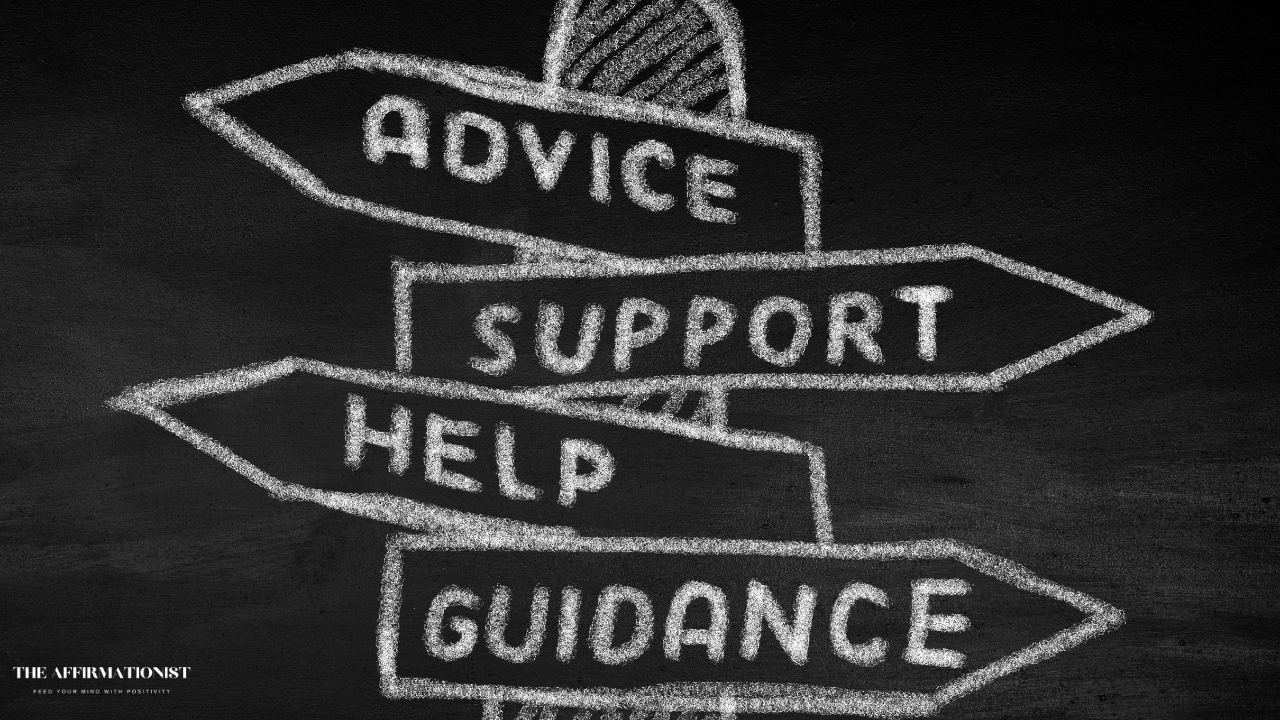
Professional guidance plays a crucial role in the journey of self-discovery, particularly for individuals navigating career choices, educational paths, and personal development. It encompasses a range of support services designed to help individuals understand their strengths, interests, and values, ultimately guiding them toward informed decisions about their professional futures. The significance of professional guidance lies in its ability to provide clarity, support, and resources that empower individuals to explore their potential and make choices aligned with their authentic selves.
The Significance of Professional Guidance
The importance of professional guidance in self-discovery can be understood through several key aspects:
- Clarity and Direction: Professional guidance helps individuals clarify their goals and aspirations. By providing structured support, guidance professionals can assist individuals in identifying their interests and strengths, which is essential for making informed career and educational choices.
- Skill Development: Guidance services often include training and workshops that equip individuals with essential skills, such as resume writing, interview techniques, and networking strategies. These skills are vital for navigating the job market and enhancing employability.
- Emotional Support: The journey of self-discovery can be fraught with uncertainty and anxiety. Professional guidance offers emotional support, helping individuals cope with self-doubt and fear of failure. This support can foster resilience and confidence in pursuing one’s goals.
- Access to Resources: Guidance professionals can connect individuals with valuable resources, including job opportunities, internships, mentorship programs, and educational pathways. This access can significantly enhance an individual’s ability to explore various career options.
- Networking Opportunities: Professional guidance often facilitates networking opportunities, allowing individuals to connect with industry professionals, peers, and mentors. These connections can provide insights into different fields and open doors to potential career paths.
Forms of Professional Guidance
Professional guidance can take various forms, each tailored to meet the unique needs of individuals. Here are some common types of professional guidance:
1. Career Counseling
Career counseling involves one-on-one sessions with a trained professional who helps individuals explore their career options, assess their skills and interests, and develop a career plan. This process often includes assessments, goal setting, and strategies for job searching.
2. Educational Guidance
Educational guidance focuses on helping individuals navigate their educational paths, including selecting appropriate courses, programs, and institutions. This guidance can be particularly beneficial for students transitioning from high school to college or those considering further education.
3. Mentorship Programs
Mentorship programs pair individuals with experienced professionals in their field of interest. Mentors provide guidance, support, and insights based on their own experiences, helping mentees navigate their career paths and develop professionally.
4. Workshops and Training Sessions
Workshops and training sessions offer skill development opportunities in areas such as resume writing, interview preparation, and networking. These sessions can enhance individuals’ readiness for the job market and boost their confidence.
5. Online Resources and Platforms
With the rise of technology, many guidance services are now available online. Websites, webinars, and online courses provide individuals with access to valuable information and resources for self-discovery and professional development.
Strategies for Effective Professional Guidance
To maximize the benefits of professional guidance, individuals can employ several strategies:
1. Set Clear Goals
Before seeking professional guidance, take time to reflect on your goals and aspirations. Having a clear understanding of what you want to achieve will help guide the conversation and ensure that the guidance you receive is relevant and focused.
2. Be Open and Honest
When engaging with guidance professionals, be open and honest about your thoughts, feelings, and concerns. This transparency will enable them to provide tailored support that addresses your specific needs and challenges.
3. Actively Participate
Take an active role in the guidance process. Engage in discussions, ask questions, and seek clarification on any topics that are unclear. The more involved you are, the more you will benefit from the guidance provided.
4. Utilize Available Resources
Make use of the resources and tools offered by guidance professionals. This may include assessments, workshops, and networking opportunities. Actively seeking out these resources can enhance your self-discovery journey.
5. Reflect on Your Experiences
After receiving guidance, take time to reflect on what you have learned and how it applies to your journey of self-discovery. Consider how the insights gained can inform your decisions and actions moving forward.
Conclusion
The journey of self-discovery is a multifaceted process that involves various techniques and strategies to enhance personal growth and understanding. Throughout this exploration, we have examined several key components: journaling, meditation, personal reflection, and the exploration of new experiences. Each of these practices plays a significant role in fostering self-awareness, emotional regulation, and the development of a deeper understanding of one’s identity.
Journaling serves as a powerful tool for self-reflection, allowing individuals to articulate their thoughts and feelings, track patterns, and gain insights into their inner worlds. By engaging in various journaling techniques, such as free writing and gratitude journaling, individuals can cultivate a greater sense of clarity and purpose. Similarly, meditation offers a pathway to inner peace and mindfulness, enabling individuals to quiet their minds, process emotions, and connect with their authentic selves. Through practices like mindfulness meditation and loving-kindness meditation, individuals can enhance their emotional resilience and foster a deeper sense of compassion for themselves and others.
Personal reflection is another essential aspect of self-discovery, providing individuals with the opportunity to analyze their experiences, clarify their values, and learn from past challenges. By employing techniques such as reflective journaling and engaging in meaningful conversations, individuals can gain valuable insights that inform their personal growth. Additionally, exploring new experiences encourages individuals to step outside their comfort zones, uncover hidden passions, and develop resilience. Whether through travel, taking classes, or volunteering, embracing new experiences can lead to profound personal transformation.
However, the journey of self-discovery is not without its challenges. Fear of change, societal expectations, and self-doubt can hinder progress and create barriers to personal growth. Understanding these challenges and employing strategies to overcome them is crucial for individuals seeking to embrace their authentic selves. Professional guidance can also play a vital role in this journey, providing clarity, support, and resources that empower individuals to explore their potential and make informed decisions.
In conclusion, the journey of self-discovery is a lifelong process that requires intentionality, openness, and a willingness to engage with oneself and the world. By incorporating practices such as journaling, meditation, personal reflection, and exploration of new experiences, individuals can cultivate a deeper understanding of themselves and their place in the world. Embracing the challenges that arise along the way, seeking professional guidance when needed, and remaining committed to personal growth can lead to a more fulfilling and authentic life. Ultimately, self-discovery is about embracing the complexities of one’s identity and finding the courage to live in alignment with one’s true self.
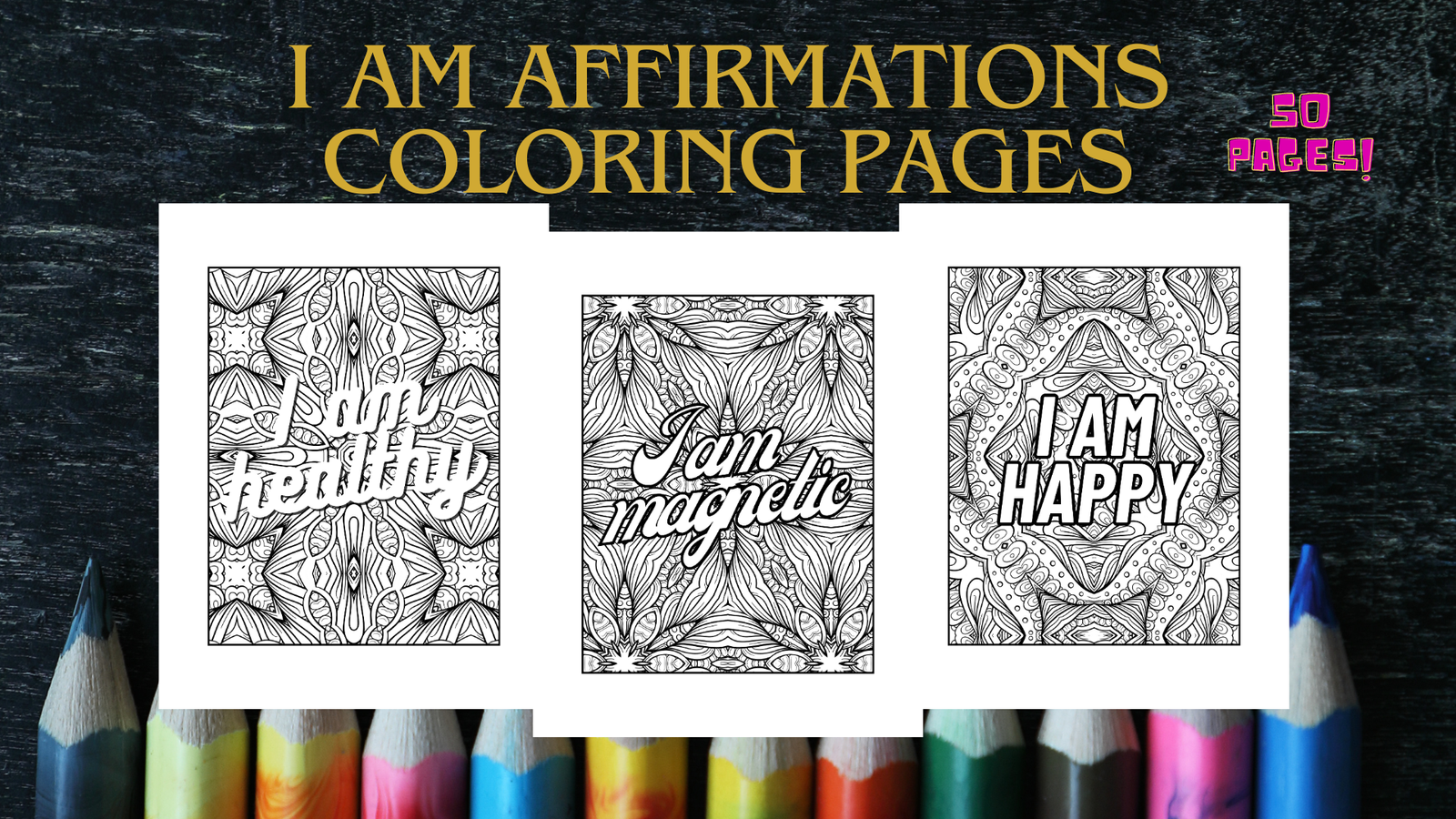


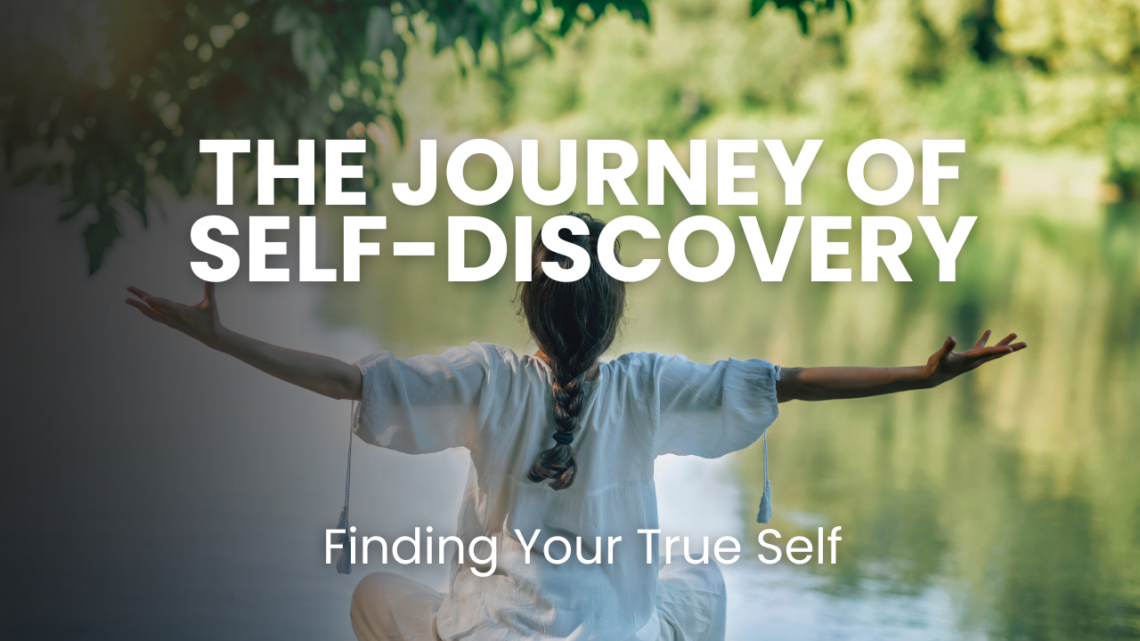


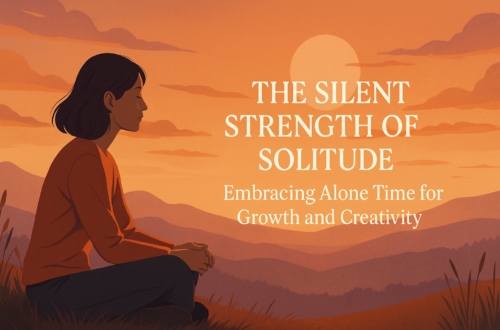

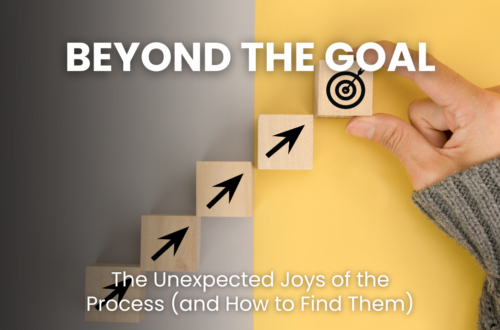
I dugg some of you post as I thought they were very useful
I am extremely inspired with your writing talents and also with the
structure on your blog.